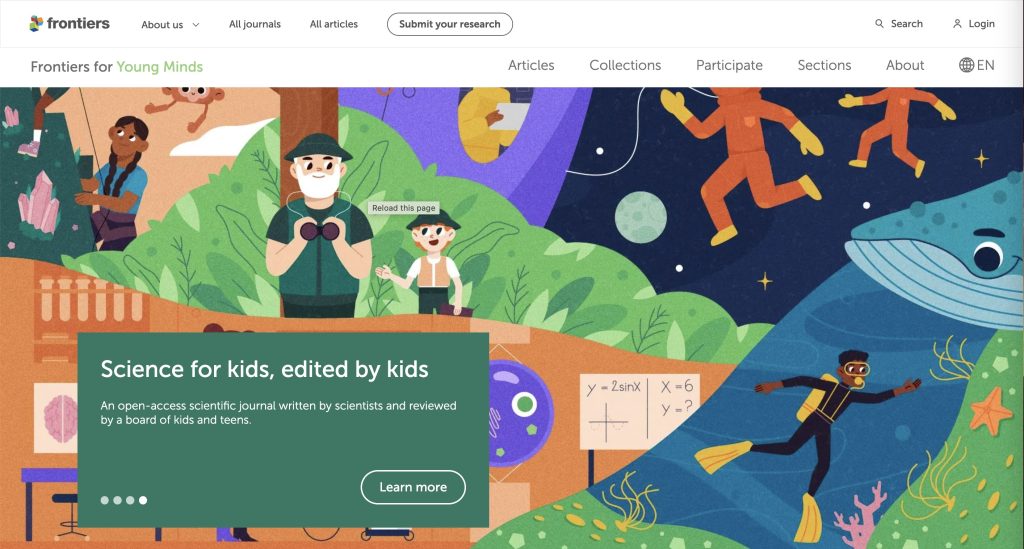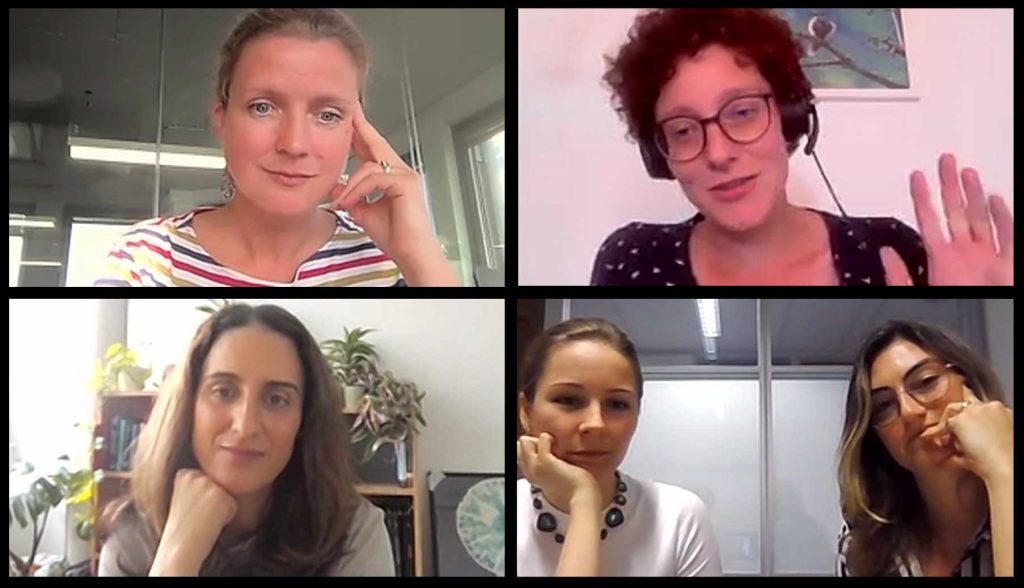Now closed!!
Open education is transforming the world of higher education, reducing equity barriers and engaging students in deeper learning. The Community College Consortium for Open Educational Resources (CCCOER) is looking for a passionate, experienced open educator to lead the Open For Anti-Racisim (OFAR) Program that promotes anti-racist classroom transformations through the use of OER and open pedagogy.
Position Description
The OFAR Program Director will manage the daily operations of OFAR, liaise with multiple stakeholders (both internal and external to OEGlobal), lead OFAR into its next phase, and closely coordinate work with our partner College of the Canyons.
The OFAR Program Director:
- Responsible for the overall management of the program
- Facilitates and communicates a clear vision to funders, members, staff, and the open education community.
- Generates support and enthusiasm for the OFAR program to CCCOER-OEG members and nationally to postsecondary institutions and government agencies focused on antiracist and open pedagogical practices at community and technical colleges.
- Develops a timeline of short- and long-term goals for maintaining and delivering a training and mentoring faculty development program
- Promotes and supports the OFAR Program by participating in stakeholder meetings and events, conference presentations and webinars, and funder communication and development.
- Develops and implements a plan for measuring the attainment of program goals and maintains momentum.
- Oversees the program’s ongoing research and evaluation
- Communicates program successes and promotes the successes of participating faculty’s antiracist and open pedagogical strategies.
Essential Functions:
- Program Leadership: Manage and support an existing team to deliver and grow the OFAR program, tracking deliverables and producing progress and annual reports according to the funder’s requirements and timelines. Communicate program successes internally and externally. Proactively recruit and on-board new team members as personnel needs evolve. Coordinate closely with the program co-lead College of the Canyons.
- Community-Building and Outreach: Raise awareness of the OFAR program through social media, regional and national conferences, and communications with the open education community. Identify potential collaboration opportunities in open and antiracist pedagogy.
- Online Program Facilitation: Hire as needed course designer(s), facilitator(s), coaches, and speakers with experience in online faculty training to implement anti-racist and open pedagogy. Plan and recruit participants and deliver online, facilitated training with ongoing mentoring support in a cohort model.
- Research Evaluation: Manage the overall evaluation of the program as participants work towards transforming their classrooms to be antiracist by using open and antiracist pedagogy. Use assessment results and success metrics to improve and grow the program.
- Collaboration: Build and maintain relationships with existing and prospective collaborators in philanthropy, higher education, antiracist and educational reform advocates, and others as the program evolves.
Required Qualifications:
- Bachelor’s degree in Education, Curriculum Design, Communications, Information Science, Library Science, or any academic discipline. Experience in building and managing diverse teams.
- Demonstrated experience with open educational resources and practices, anti-racist pedagogy, culturally responsive teaching, and associated issues.
- Experience with web-based publishing and social media.Experience tracking and measuring outcomes.
- Experience collecting, analyzing, and sharing data; experience making and communicating data-informed decisions.
- Experience successfully managing complex projects, including people management, budgeting, report writing, etc.
- Experience using a learning management system like Canvas, Moodle, etc., for content delivery and course design.
- Demonstrated track record of successfully working with and managing a team remotely.
Required Knowledge, Skills, and Abilities:
- Experience analyzing community needs and synthesizing resources to support the community; experience communicating with various stakeholders.
- Willingness and ability to work collaboratively and cooperatively with others; participates and fosters teamwork; promotes cooperation and commitment within a team to achieve goals and deliverables.
- Makes timely, informed decisions considering the facts, goals, constraints, and risks; ability to use professional judgment in complex situations; effectively and appropriately deals with/adapts to change; demonstrates critical, creative, and reflective thinking.
- Takes responsibility for own performance by setting clear goals and balancing critical job requirements through the proper use of task management, results orientation, and problem-solving skills.
- Adheres to high standards of integrity and honesty. Values open-mindedness, inclusion, multicultural perspective, and multiple ways of knowing, thinking, and being.
- Helps create a work environment that embraces and appreciates diversity.
- Communicates effectively and collaboratively with staff and leadership; applies effective written and oral communication techniques to convey clear and timely messages; builds constructive working relationships characterized by high levels of acceptance, cooperation, and mutual respect.
- Adapts to changing business needs, conditions, and work responsibilities; responds to change with a positive attitude and a willingness to learn new ways to accomplish work activities and objectives.
- Utilizes excellent time management and problem-solving techniques and use of professional judgment in complex situations; demonstrates strong project management skills.
Desired Qualifications:
- Master’s degree in Education, Curriculum Design, Communications, Information Science, Public Administration, or any academic discipline.
- Experience in a higher education environment, preferably in professional development.
- Two years of work experience with open education and open content issues.
- Two years of work experience with diversity, equity, inclusion, and antiracism programming.
- Knowledge and understanding of U.S. and international intellectual property and copyright laws.
- Training or experience in Instructional Design principles.
Position details
Location:
This is a virtual position. Given the regional focus of the program, preference is for someone in North America with knowledge of the community college system. Access to a computer with a reliable and secure internet connection is essential.
Term:
This is a 30-hour-per-week virtual position that is grant-funded and available for a two-year term, with the possibility of an extension.
Salary:
This is a contractor position. Salary is commensurate with experience. The selected candidate will be responsible for costs associated with remote work.
How to Apply
Closing date:
The closing date for applications is Oct 30, 2023. We will be screening candidates and scheduling interviews with short-listed candidates on a rolling basis. We encourage you to apply early.
Open Education Global is committed to diversity and multiculturalism, and we welcome applications from all who meet the requirements. Studies have shown that people marginalized by racism and/or sexism are less likely to apply for jobs unless they meet every listed qualification. If you are unsure if you meet the listed requirements but believe you can perform the job as described, we encourage you to apply.
About Community College Consortium for Open Educational Resources (CCCOER)
The Community College Consortium for Open Educational Resources (CCCOER) promotes the awareness and adoption of open educational policies, practices, and resources to close equity gaps, particularly for traditionally underserved students. CCCOER membership includes hundreds of colleges across North America. CCCOER is part of Open Education Global. Visit the CCCOER website to find out more.
About Open Education Global
Open Education Global is a member-based, global non-profit supporting the development and use of open education to empower learners around the world. We envision a world where everyone, everywhere, has access to the high-quality education and training they desire, where education is seen as an essential, shared, and collaborative social good, and where open educational practices facilitate access, equity, and opportunity. For more information, please visit our website at www.oeglobal.org
Open For Antiracism Faculty Program
Since 2020, CCCOER has managed the Open for Antiracism Program (OFAR). This program supports community college faculty who wish to make their teaching antiracist by leveraging Open Educational Resources (OER) and Open Pedagogy. It is co-managed with College of the Canyons, a California-based community college.
The OFAR program provides a one-year of training and support for faculty accepted into the program. Participants complete an online course introducing core program concepts related to using OER and Open Pedagogy to make teaching antiracist, followed by phases of action planning, coaching, and implementation. Throughout the program, research is conducted to document the impact and test our assumptions. OFAR currently supports faculty from California Community Colleges and may expand its reach under the right conditions.
More information about OFAR is available on the OFAR website and in the article Open for antiracism: supporting educators to use open education for antiracist teaching. If you have any questions, comment or concerns, please contact ofar@oeglobal.org.



